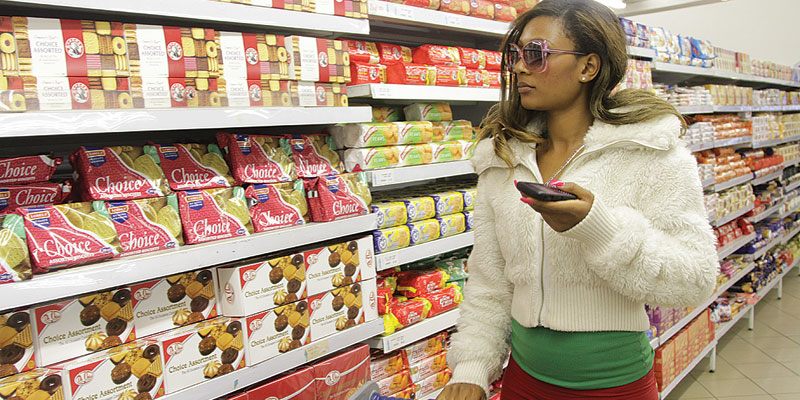
ZIMBABWE’S monthly cost of living rose by 4,4% to $18 750 in October, even as the Zimbabwe National Statistics agency (ZimStat) said the annual inflation rate dropped during the period.
BY FIDELITY MHLANGA
This figure was estimated at $17 956,87 in September.
But so steep were price hikes during the period that in Matabeleland North, consumers required up to $20 679 for a family of five to pull through.
But in a statement on November 11, ZimStat indicated that the year-on-year inflation rate had softened to 471,25% in October, from 659,40% in September.
The inflationary slide meant that prices were stabilising as exchange rate volatilities calmed down in the past five months after the Reserve Bank of Zimbabwe introduced the foreign currency auction system.
ZimStat measures the total consumption poverty line (TCPL) for a family of five and families earning below this figure are deemed poor.
Escalating living expenses will exert pressure on thousands of Zimbabweans who have been thrown out of jobs after an intensification of de-industrialisation in the past year.
- Chamisa under fire over US$120K donation
- Mavhunga puts DeMbare into Chibuku quarterfinals
- Pension funds bet on Cabora Bassa oilfields
- Councils defy govt fire tender directive
Keep Reading
Over one million more Zimbabweans joined the jobless ranks this year after blanket firm shutdowns were effected by government to prevent contagion as the deadly COVID-19 pandemic tore through provinces.
But even those formally employed will feel the heat.
Very few workers currently earn over $14 500 because companies are struggling to stay afloat due to diminished demand precipitated by a gruelling economic crisis. The least paid civil servant earns about $14 500.
Experts say millions of Zimbabweans living in rural areas will sink into abject poverty as steep rises in basic commodity prices erode their already over-stretched buying power following the prolonged economic crisis.
“The TCPL for an average of five persons stood at $18 750,35 in October 2020,” ZimStat said in a statement on Wednesday.
“This means that an average household required that much to purchase both food and non-food items for them not to be deemed poor. This represents an increase of 4,4% when compared to the September 2020 figure of $17 956,87. In September, a family of five needed $17 956,87 not to be deemed poor,” ZimStat said, adding that the TCPL for Zimbabwe stood at $3 750,07 per person in October 2020.
This means an individual required that much to purchase both non-food and food items as at October 2020 in order not to be deemed poor, and it represents an increase of 4,4% when compared to the September 2020 figure of $3 591,37.
Food poverty line (FPL) for one person rose by 3% in October 2020 to $1 522, whereas that for an average of five persons per household in October 2020 gained by a similar percentage to $7 608.
“This means that the minimum needs basket cost that much per person in October 2020. This represents an increase of 3% over the September 2020 figure of $1 476,55. The October 2020 FPL for an average of five persons in Zimbabwe stood at $7 607,70. This represented an increase of 3% when compared to the September 2020 figure of $7 382.76,” ZimStat added.
It said the poverty datum line varied by province as prices vary from place to place.
The TCPL for an average household in October 2020 ranged from $17 879 in Mashonaland Central province to $20 679 in Matabeleland North province. The differences are explained by differences in average prices in the provinces.
Labour market analyst John Mufukare told NewsDay Business yesterday that there appeared to be an element of profiteering by retailers in Zimbabwe.
“If retailers are talking about price stability but we continue to see price increases then it means businesses are profiteering,” said Mufukare, a former top executive at the Employers Confederation of Zimbabwe.
Zimbabwe, which has the world’s second highest inflation of 471,25% after Venezuela’s 1 813%, is experiencing its worst economic crisis in a decade.











